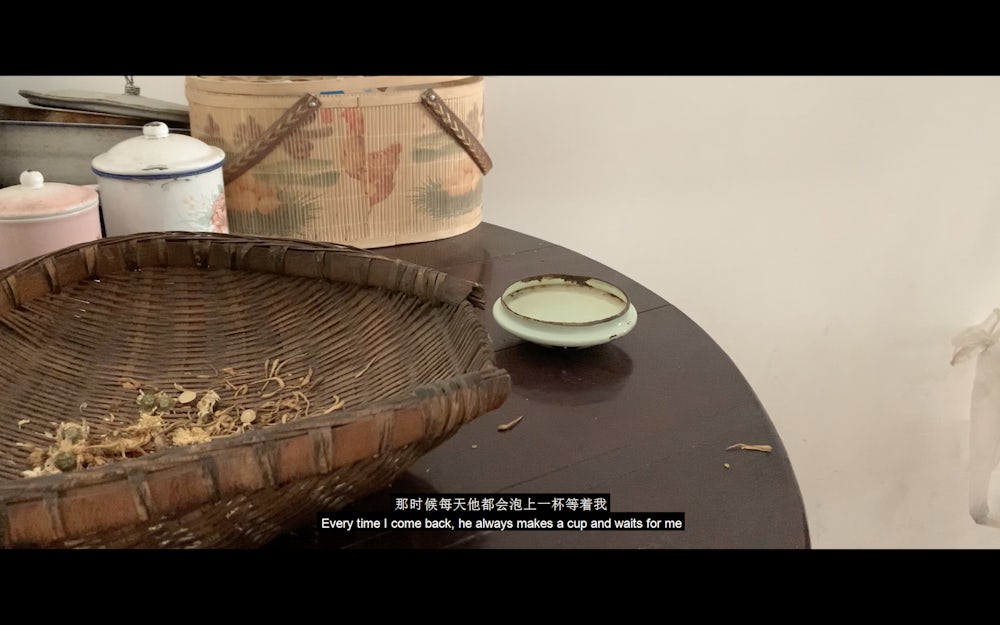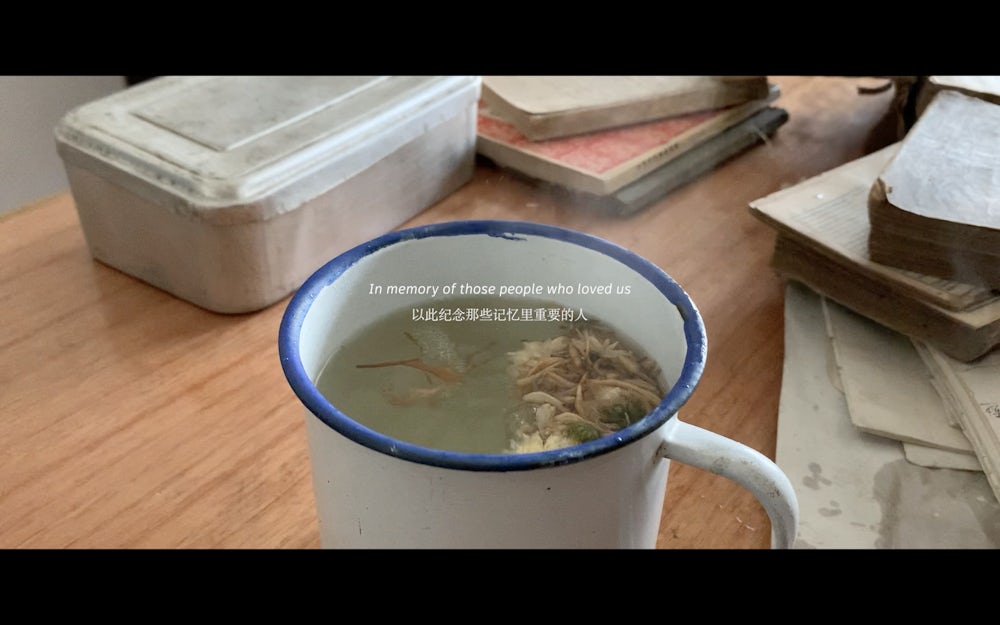Yuzhi Gu
"Smell-Evoked Memory"
Keywords: architecture, documentation, identity, materials, moving image
Nothing revives the past so completely as a smell that was once associated with it.
Russian novelist Vladimir Nabokov
The Proust effect is a phenomenon where odours and other sensory stimuli instantaneously trigger vivid autobiographical memories. It is named after the French novelist and essayist Marcel Proust who writes about his sensory experience in his book 'Remembrance of Time Past'.1 While other sensory stimuli can trigger a memory, smell is the only one that lets us recall memories with such sudden and vivid detail.
According to Lombion et al. 2, smells trigger strong memories because of the brain's anatomy and how close people’s olfactory system is to their emotion and memory processing systems. Odours trigger neurons to send signals to the olfactory bulb which runs from your nose to the base of your brain. This path has direct connections to your hippocampus (an area that plays a major role in learning and memory) and to your amygdala (the area responsible for processing emotion). The olfactory bulb interprets these signals into what we perceive as smells.
Scents are the only sensations that travel such a direct path to the brain's emotional and memory centres. Therefore, in a way, they bring back memories that might otherwise never be recalled, resulting in an intimate connection between emotions, memories, and scents. According to Herz 3, an adjunct assistant professor of psychiatry and human behaviour at Brown University and author of the book 'The Scent of Desire', memories triggered by scents instead of other senses are experienced as more emotional and more evocative than memories triggered by any other cue.
In essence, smell stimulates lasting memory, and memory triggers emotions. Eventually, the clarity of a memory will become blurred, and the sensitivity of the smell will become dull, but feelings will never fade away. Every time I visit my late grandfathers home, it feels like the smells are disappearing and as though I am struggling to hold on to my memories of him. Because I do not want to forget him completely, I chose to compile the memories of my grandfather that are linked to the smell of objects. As such, this project films the performance of the memories of my grandfather.
Shepherd G.M., Shepherd-Barr K. (2009) Proust Effect. In: Binder M.D., Hirokawa N., Windhorst U. (eds) Encyclopedia of Neuroscience. Springer, Berlin, Heidelberg. https://doi.org/10.1007/978-3-540-29678-2_4852 ↩
Lombion, S., Bechetoille, B., Nezelof, S., & Millot, J. (2010). Odor perception in alexithymic patients. Psychiatry Research, 177(1-2), 135-138. doi:10.1016/j.psychres.2009.01.018 ↩
Herz R. S. (2016). The Role of Odor-Evoked Memory in Psychological and Physiological Health. Brain sciences, 6(3), 22. https://doi.org/10.3390/brainsci6030022 ↩




